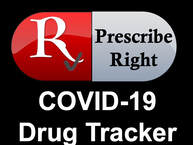|
COVID-19 Vaccines
The World Health Organization’s Global Advisory Committee on Vaccine Safety found the benefits of mRNA COVID-19 vaccines outweigh the risksin reducing hospitalizations and deaths from COVID-19. The risk for myocarditis and pericarditis is very low. The estimate in patients 12 to 29 is 40.6 cases per million second doses among males and 4.2 cases per million among females. In patients over 30, the rate drops to 2.4 per million second doses in males and one per million second doses in females in patients. The FDA has added Guillain-Barre syndrome to the Warning section of the Fact Sheet for the Johnson & Johnson COVID-19 vaccine. Most cases occurred within 42 days after vaccination. The occurrence is very low at 100 cases per 12.5 million doses. The FDA, CDC, and NIH have issued a joint statement that a booster vaccination is not currently needed for people that are fully vaccinated for COVID-19. A retrospective analysis of the outcomes of 15,060 pregnant women in an Israeli database found the estimated effectiveness of the Pfizer-BioNTech COVID-19 vaccine to be 78%. Updated NIH Treatment Summary Current treatment recommendations from NIH are organized by severity of disease in an easy-to-use graphic.
NIH found there is insufficient evidence to recommend either for or against the use of GM-CSF inhibitors (lenzilumab, otilimab, or mavrilimumab) for the treatment of hospitalized patients with COVID-19. COVID-19 Antivirals An analysis of oropharyngeal specimens from 181 patients that were collected during the Norwegian arm of the WHO Solidarity study did not find a decrease in SARS-CoV-2 viral load with remdesivir or hydroxychloroquine compared to standard of care. Comments are closed.
|
Stay informed, subscribe to the Prescribe Right Pharmaceutical Pipeline Tracker
Archives
January 2023
Categories |
Services |
Company |
Support |
© COPYRIGHT 2015. ALL RIGHTS RESERVED.
|


 RSS Feed
RSS Feed